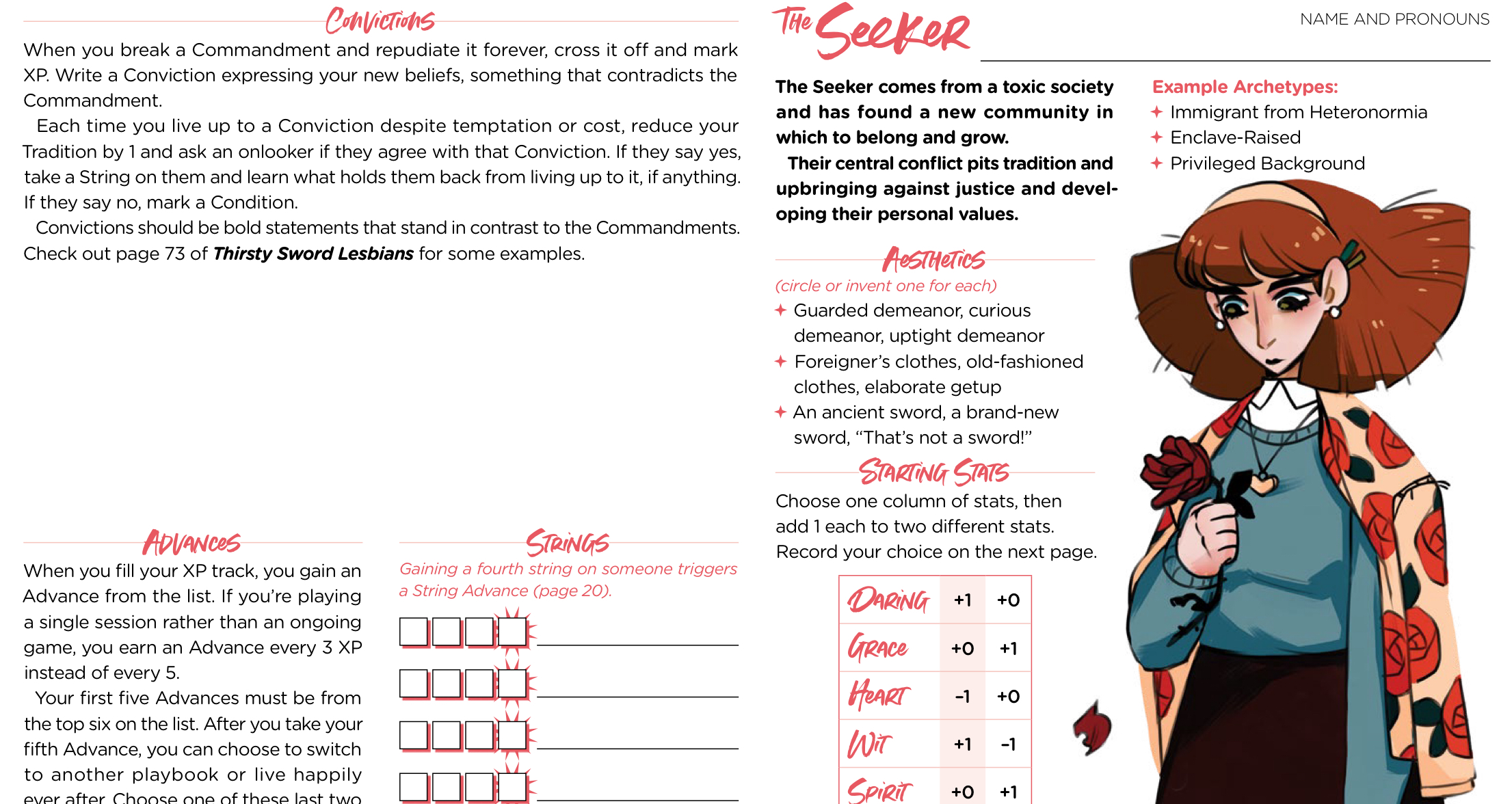Jio Kim
The Thirsty Sword Lesbian is a game that focuses on the relationships between players. Players can cause emotions by taking actions or influence other players by using their relationship with another player. The game’s system is “Powered by the Apocalypse.” One of the common elements of this system is that it has characters for players to choose from, and players can customize some parts of the character. There are characters such as the Beast, the Chosen, the Devoted, the Infamous, and the Nature Witch. These character’s names are quite self-explanatory and the illustrations help to explain the personality and background of the characters. I found it interesting to read through the character sheet and customize some of the elements of the character. Moreover, the system has its unique dice roll system. The players roll 2 6-sided dice. If the result is more than 10, then it is a total success that is called an “upbeat.” 7-9 is a “mixed beat” which will result in partial success and some drawbacks. Below 6 would result in a “downbeat,” which is a fail. The players’ stats also influence the result, making the characters’ stats more important.
Typically, the starting point of the game is to write the “palette.” Players can write about what they want to include and exclude in the game. I think having this procedure is very helpful since every person has different likes and dislikes. Having this palette helps the group to understand each others’ interests and makes the game more enjoyable for everyone. This also makes the game more replayable since playing with different groups of people will give you different experiences.
As mentioned before, relationships and emotions are important parts of the game. Relationships are shown in the form of “strings.” Each player gives each other’s characters strings, and the string represents the characters’ influence over one another. Although most of the actions in the game are taken by rolling dice, players can choose to use strings to determine the outcome. On this occasion, players will not roll the dice, and instead achieve their goal by influencing another character’s action. Strings play an important role in facilitating the interactions among players. Additionally, the relationships may influence another player or cause them to feel emotions. The negative emotions that the players feel result in “conditions”, which result in different penalties. If a player gains all six of the conditions, they are eliminated from the game. The interesting part of the game is that players can provide emotional support to other players to clear their conditions. In the actual game, some examples of providing emotional support can include talking to the person or playing with them. I liked this element of the game because it resembles how we soothe others in the real world.
Overall, I think this is a great game that outlines a unique world with clear rules. Players are given a lot of freedom within the framework and they can add or exclude what they like or dislike. The GM would ideally not talk a lot and leave space for the players. GMs would step in to help players when they are stuck. This helps the players to engage in collective storytelling more and build up a world they like.
